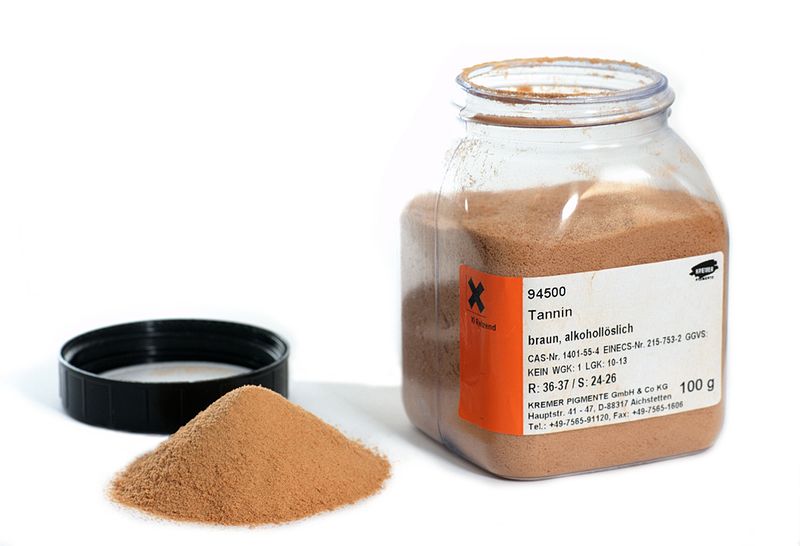Tannic acid is an organic compound that is known for its astringent taste and characteristic brown color. It is widely used in various industries, including food, beverage, pharmaceutical, and chemical, due to its unique properties. If you are looking for a reliable source of information on the properties and applications of tannic acid, then you have come to the right place. In this article, we will discuss the useful tannic acid MSDS, and discover how this versatile chemical can meet your industrial needs.

What is Tannic Acid?
Tannic acid is a type of polyphenol that is naturally found in various plant species, such as oak, walnut, and tea. It is extracted from these plants using different methods that involve water, alcohol, or other solvents. The resulting product is a powder or granular substance that varies in color, depending on the source plant and production process.
Tannic acid has a distinctive astringent taste that is similar to black tea. It is soluble in water, alcohol, and glycerol, but insoluble in non-polar solvents, such as oil and ether. It is a weak acid, and its pH ranges from 2.5 to 5.5, depending on the concentration and degree of ionization.
What are the Properties of Tannic Acid?
Tannic acid has various properties that make it useful in different applications. Some of these properties are:
- Astringency: Tannic acid is known for its ability to precipitate proteins and other organic compounds, leading to a dry feeling in the mouth. This property is useful in the food and beverage industries, where tannic acid is used to enhance the taste and texture of products, such as wine, beer, and chocolate.
- Antioxidant: Tannic acid has strong antioxidant properties that can prevent or reduce the oxidative damage caused by free radicals in cells. This property is useful in the pharmaceutical and cosmetic industries, where tannic acid is used to protect and improve the health of skin cells and tissues.
- Anti-inflammatory: Tannic acid has anti-inflammatory properties that can reduce the swelling, redness, and pain associated with inflammatory conditions, such as arthritis, bronchitis, and gastritis. This property is useful in the medical and veterinary industries, where tannic acid is used to treat or prevent these conditions.
- Chelating: Tannic acid can form stable complexes with metal ions, such as iron, copper, and zinc, that can be easily absorbed by the body. This property is useful in the nutritional and pharmaceutical industries, where tannic acid is used to provide or enhance the bioavailability of these micronutrients.
What are the Applications of Tannic Acid?
Tannic acid has many applications in various industries, including:
- Food and Beverage: Tannic acid is a common ingredient in many food and beverage products, such as wine, beer, tea, coffee, chocolate, and vinegar. It is used to enhance the flavor, color, and texture of these products, as well as to stabilize them against spoilage and oxidation.
- Pharmaceutical and Cosmetic: Tannic acid is used in various pharmaceutical and cosmetic products, such as skin creams, shampoos, mouthwashes, and wound dressings. It is used to protect and improve the health of skin cells and tissues, as well as to prevent or treat various health conditions.
- Chemical and Industrial: Tannic acid is used in various chemical and industrial applications, such as metal treatment, leather tanning, papermaking, and wastewater treatment. It is used to precipitate, bind, or remove various substances, such as proteins, dyes, and heavy metals.
Conclusion
Tannic acid is a versatile chemical that has many useful properties and applications. It is a natural compound that is extracted from various plants, and is widely used in various industries, such as food, beverage, pharmaceutical, and chemical. Understanding the properties and applications of tannic acid can help you use it effectively and safely in your industrial processes. The tannic acid MSDS is an invaluable source of information that can guide you in handling, storing, and disposing of tannic acid, as well as in ensuring the safety of your workers and the environment.